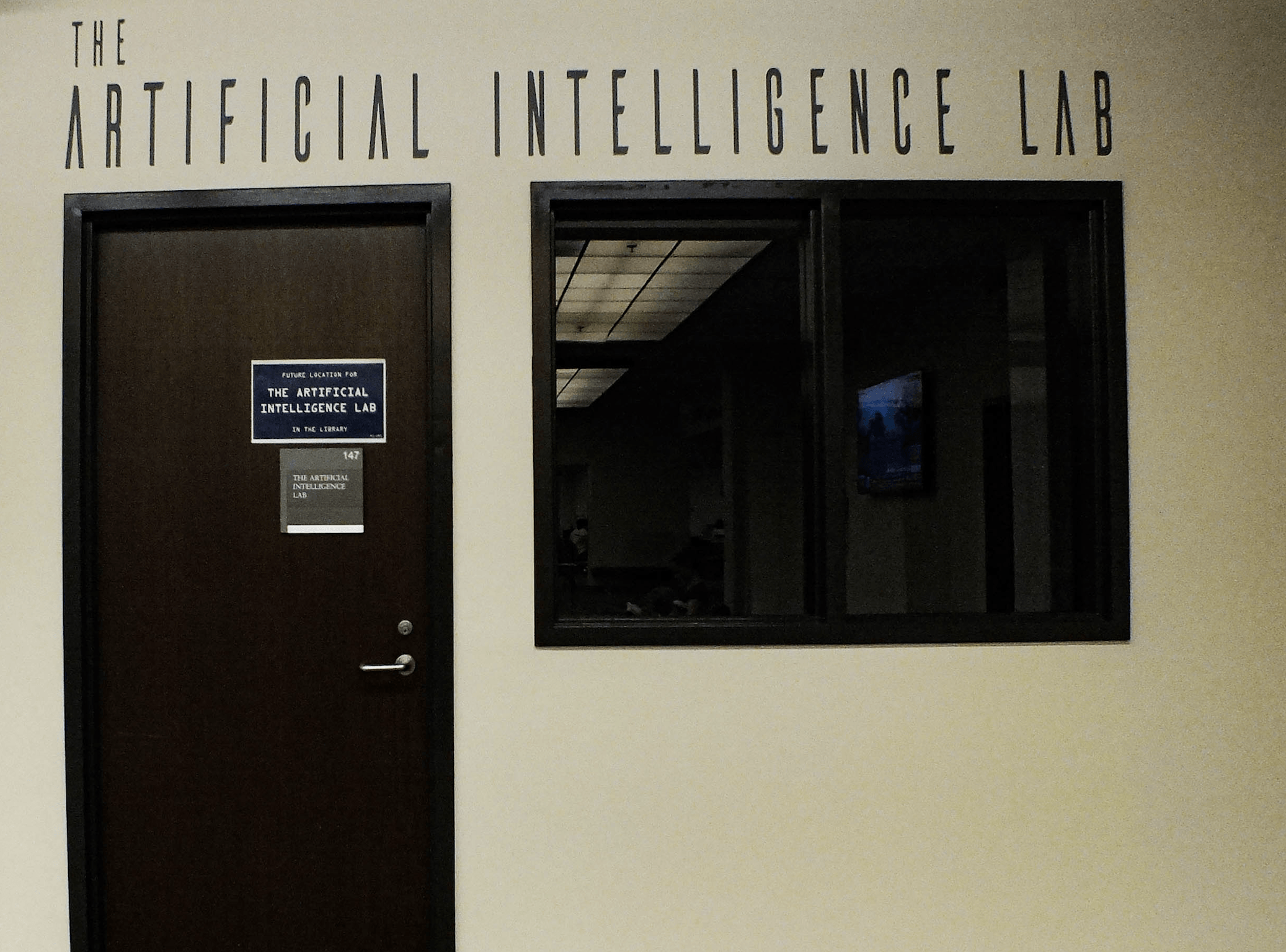Photo by Sarah Vinci | The new university artificial intelligence lab is the first of its kind to be located in a college library.
On Tuesday, Sep. 25, the University of Rhode Island will host a ribbon cutting ceremony to showcase the opening of its new artificial intelligence lab.
The lab is unique in that it is one of the first Artificial Intelligence (AI) labs in the country located in a University library.
The lab was placed in the Robert L. Carothers Library in hopes that people studying a wide variety of subjects can come together to discuss and learn about the future of artificial intelligence.
Karim Boughida, the dean of university libraries and one of the founding members of the lab said, “The difference between this AI lab and the rest is that this is educational, so it’s aimed at undergraduate students and the community primarily but the material can be used for research too.”
When one thinks of artificial intelligence they might immediately think of a dystopian future where robots control the world in a matrix-like society, a terrifying place where free thought and opinion are suppressed by technology.
Boughida stated that in reality, the true aim of artificial intelligence is to prevent ourselves as individuals from suppressing thoughts and opinions, from converting our bias into reality.
He also noted that a common misconception about AI is that the only people who should be educated or involved in its implementations are those in the technology field. Boughida emphasized that this is not the case.
Boughida stated, “If you don’t really pay attention to AI, well, it’s going to swallow you, someone is going to control your life.”
AI has the potential to save people from themselves and from corruption. However, to prevent common fears of AI, it is important to learn about it and how it can be used for good because like all things, it can be used for detriment.
Artificial intelligence transcends machine learning and technology and acts as a step forward in social justice and ethics. However, the technological component is just as important.
According to Boughida, “It’s technical too. It’s a real AI lab, but it’s also space for conversation, critique and there will be symposia, all to raise awareness.” Because of this, URI was sure to put together a well-rounded founding team to ensure that all realms of artificial intelligence were considered.
This team consists of Assistant Professor in Electrical, Computer and Biomedical Engineering, Kunal Mankodiya, Professor for the Department of Computer Science and Statistics, Joan Peckham, Professor in the Department of Philosophy, Cheryl Foster, and from University Libraries, Karim Boughida, Angel Ferria and Harrison Dekker.
Their contributions ensure that the technical, ethical and administrative portions of the lab are balanced and reflect the mission of AI.
In his interview, Boughida also mentioned future implementations of artificial intelligence. Artificial intelligence means a potential standstill in companies who look to make money in immoral ways with one-sided interests, it means that human bias can be overlooked and data can be utilized when making decisions, it means that systems like that of voting can be more secure, and it means that we can bypass fake news and try to influence the public-good agenda.
There are a lot of gray areas as to where AI will lead us, but with the rise of AI labs in the country and research being done, we can educate ourselves, and spearhead artificial intelligence. An inevitable advancement that can be used as a vehicle for positive change.





